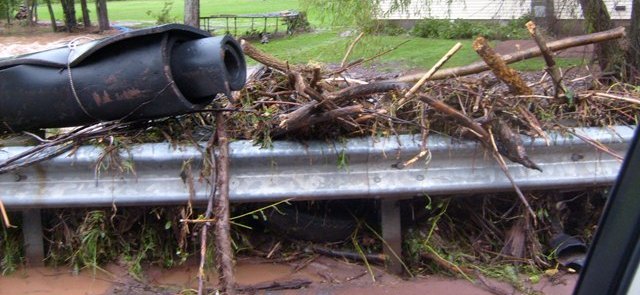Contractors Busy with Repairs Due to Lee
Hurricane Irene and Tropical Storm Lee have been keeping contractors busy repairing damage, and helping people and businesses start the rebuilding process. In some cases, even sump pumps could not keep up with the heavy rains, leaving a lot of work behind.
John Zimmer, President of the Keystone Chapter of Associated Builders and Contractors, says it starts with efforts to limit the initial damage. He says carpet and flooring have to be pulled out. Damaged dry wall must be ripped out and equipment has to be brought in to dry out and dehumidify the building.
Some homes and business just need repairs after that, but others need to be completely remodeled or rebuilt. Zimmer says businesses continue to suffer economic damage until they can reopen.
Zimmer says some of the people who escaped flooding have found leaks from the pounding rain and wind damage from earlier wind storms that may have gone unnoticed. He says asphalt shingles may have gotten ripped off of roofs. The heavy rain can also find other fissures and cracks where a normal rain would not have created problems, so some people are finding water damage around windows and doors.
Zimmer says if you’re looking for a contractor, be patient and work with local trade associations to get references. He reminds consumers that home repair contractors in Pennsylvania must be registered under state law.
Zimmer says despite drains and sump pumps, their chapter headquarters did not escape damage from Lee. They got about 5” of standing water in the basement where they hold apprenticeship training classes. So they’ve had to improvise this week without their classroom and shop.












